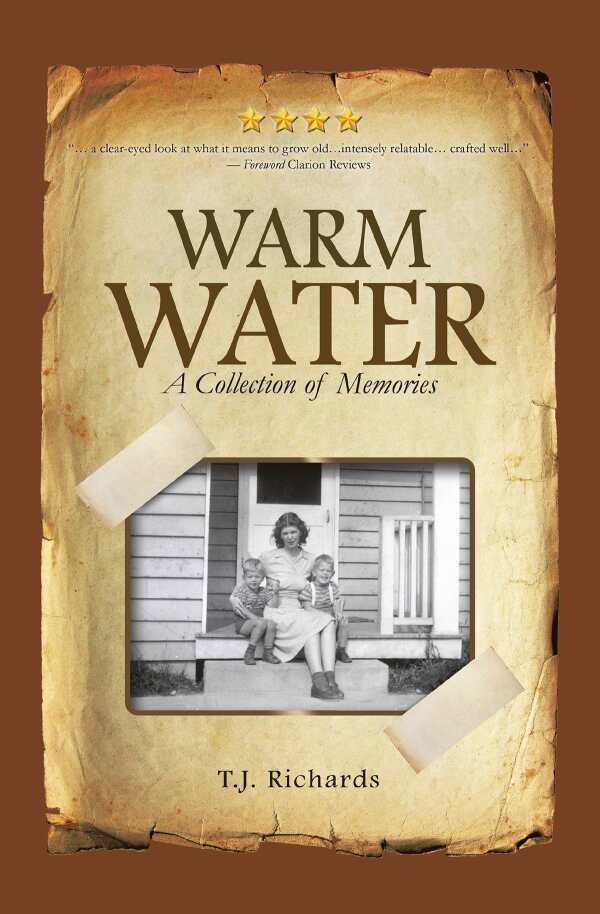Warm Water
A Collection of Memories
Warm Water relatably explores what it means to grow up and grow old.
Warm Water: A Collection of Memories by T. J. Richards is a memoir that shares an array of snapshots from the broad span of one man’s life.
Richards spent his childhood in a housing project for World War II defense workers. He lived there with his parents and eight siblings. They didn’t have much, except love and a sense of adventure.
That’s how this story begins, but then it follows Richards throughout life as he grows in understanding of himself and the world, struggles with angst over family secrets and the difficulty of change, joins the army, and eventually takes a clear-eyed look at what it means to grow old. His stories are arranged chronologically, if sometimes jumping many years ahead. They are well connected by Richards’s voice and those of other characters, particularly family members.
The key aim of the book is to explore the jarring, swift, unstoppable passage of time; the opening recollection finds Richards visiting his old home with his brother, only to find out the neighborhood is being torn down to put in a golf course. Now his memory is all he has left. This theme subtly unifies the book, which is aptly capped off by Richards’s ruminations on aging; he writes, today, as a retired man.
While the story is singularly his, it’s intensely relatable. Common events, like a difficult family move, and themes, like the growing complexity of family as people age, make it easy for people from different backgrounds to see themselves in the book.
The relationship between Richards and his mother is particularly compelling. It begins with the simple joy of them taking a bath together when he was four, and while the pain and complications of their relationship increase over decades, their love is unwavering.
The narrative is smooth, with a balance of dialogue, description, and exposition that creates a textured, flowing story. The pace is fairly slow, fitting well with the idea of reminiscence, but at times it’s a bit too meandering to pull the story forward effectively.
The voice of the stories is warm and open, and it’s crafted well to mature alongside the age of the narrator. It’s friendly but not overly casual, favoring polished craft over colloquialism.
While the vast majority of the book is prose, it includes a short, rhythmic free-verse poem, “Hopping Cars,” that uses visual language and indicates keen attention to the sounds of words. The book includes some personal photos of people and places, but they’re too small and dark to add much to the narration.
Warm Water explores what it means to grow up and grow old.
Reviewed by
Melissa Wuske
Disclosure: This article is not an endorsement, but a review. The publisher of this book provided free copies of the book and paid a small fee to have their book reviewed by a professional reviewer. Foreword Reviews and Clarion Reviews make no guarantee that the publisher will receive a positive review. Foreword Magazine, Inc. is disclosing this in accordance with the Federal Trade Commission’s 16 CFR, Part 255.

